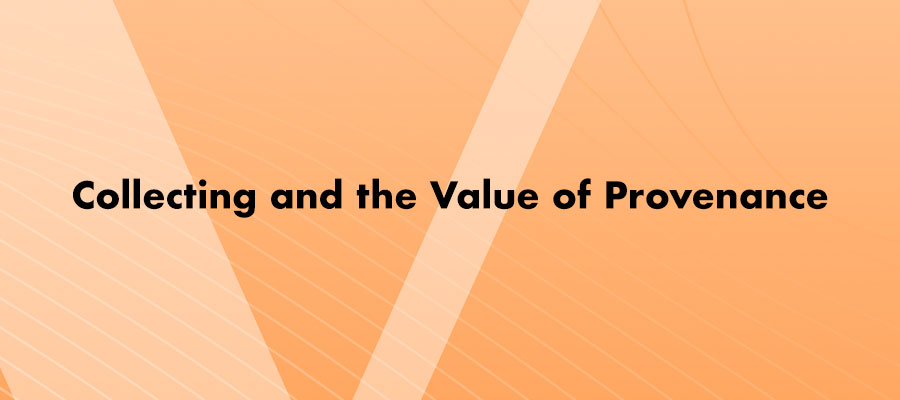Contributions are being sought for a peer-reviewed, English-language edited volume on the value of provenance in collecting and art market practices. This book, to be edited by Christian Huemer and Johannes Nathan, and to be published in the Brill series “Studies in the History of Collecting & Art Markets” will build on papers presented at the 5th Swiss Congress for Art History in Zurich earlier this year.
Provenance information can significantly increase or diminish an artwork’s intrinsic and monetary value. While a “good” or “interesting” provenance is prone to be explored and advertised, “uninteresting” or “contaminated” provenances are often ignored or even suppressed. Such selective approaches to provenance information, today perceived as arbitrary, not only pertain to the art market, they are also known from public and private collecting. What is more, the relative weight given to provenance information has in itself been subject to momentous revaluations in the course of time. While some periods tended to marginalize is significance, others generally stressed the importance of provenance information.
Ideological currents and historic developments not only drive the physical migration of cultural property, they also convey sweeping positive or negative connotations to the resulting object histories – connotations which may in themselves be subject to later revisions. The approach of the market and art collectors to provenance information is clearly affected by such tectonic shifts. Until the end of the twentieth century, for instance, provenance information and research was a marginal affair. Today, however, discussions over cultural property looted by the Nazis or from colonial territories have brought this category to the fore. This volume seeks to explore and illustrate the changes in the status of provenance information, not only in recent decades, but also in earlier times. It welcomes both surveys and case studies which might for example touch on points of interest such as:
- the dissolution of aristocratic collections and shifts in the prestige of provenance;
- provenance accepted as a guarantor of discernment and authenticity;
- provenance information and the revaluations of triumphs and tragedies in war and conquest;
- changing approaches to provenance information in the literature on art and databases;
- changes in the treatment of provenance information in displays and collection catalogues;
- changes in the art market’s handling of provenance information;
- connoisseurship and its changing approaches to provenance information;
- object and collection histories illustrating changing approaches to the handling of provenance information.
We look forward to proposals addressing the above-mentioned issues or closely related questions. Abstracts due November 30, 2022. The submission date of the finished article of 6,000-8,000 words (and 6-8 illustrations) will be May 1st, 2023.
